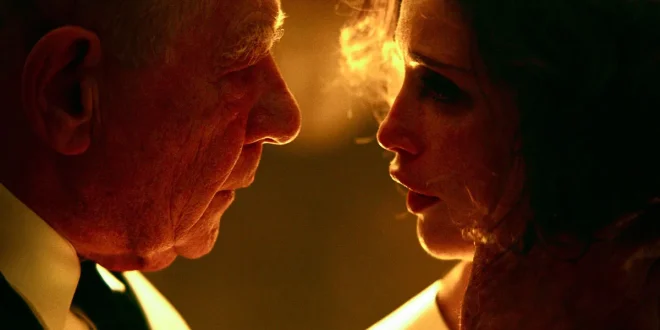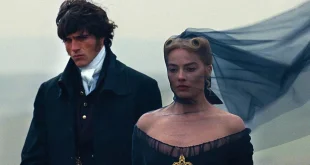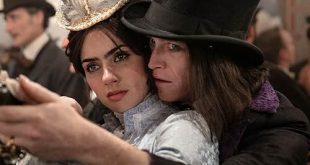Regardless of its Greek and Latin origins, defined as “able to discern”, the critic’s role, to judge, evaluate, interpret categorically sinks into the negative realm of toxic criticism in “The Critic” (based on 2015 novel “Curtain Call” by Anthony Quinn) and Ian McKellen as “The Daily Chronicle’s” London theatre critic “Jimmy Erskine” champions as an acerbic annihilator, castrator, humiliator of all thespians who dare to tread on a sacrosanct stage; his perpetual victim “Nina Land” (Gemma Arterton, perfect as a talented, insecure, artistically doomed heroine), his vendetta sparked by his own wicked wick of brilliant, cunning, jeering Shakespearian wit.
At the bones of this insightful, but at times minimally weak film, is that Europe was experiencing the embryonic flames of fascism; it is 1934 (Hitler is Chancellor in Germany) and Sir Oswald Mosley’s prescient speech proclaims that fascism was exponentially growing at a rate faster in Britain than “anywhere else in the world”. Inherent in fascism is its religious myth of entitlement, totalitarianism, exclusivity and its reptilian antisemitism, disdain, disgust of outliers. Critic Jimmy Erskine is hauntingly, oftentimes flauntingly gay. His theatrical, taunting, androgynous swish is arrestable; accountability for one’s affinity still rankles well into the twenty-first century. Ian McKellen grasps, as a gay man, the intricacies, tortured complexities of an alternative lifestyle; Jimmy gibed, mocked, terrified of discovery, excruciatingly, makes irrevocable decisions.
When his employment is terminated, he congers, with Nina Land, a licentious plot, blackmailing the paper’s owner “David Brooke” (Mark Strong imbues dignity, heartbreaking honesty and a portrait of galvanizing pain to his dramatis personae.)
“The Critic” struggles with its message but soars with its protagonists culminating in, if not profound, an entertaining escapade.
THREE STARS!!!
Peneflix
 Peneflix MOVIE REVIEWS BY PENEFLIX
Peneflix MOVIE REVIEWS BY PENEFLIX





